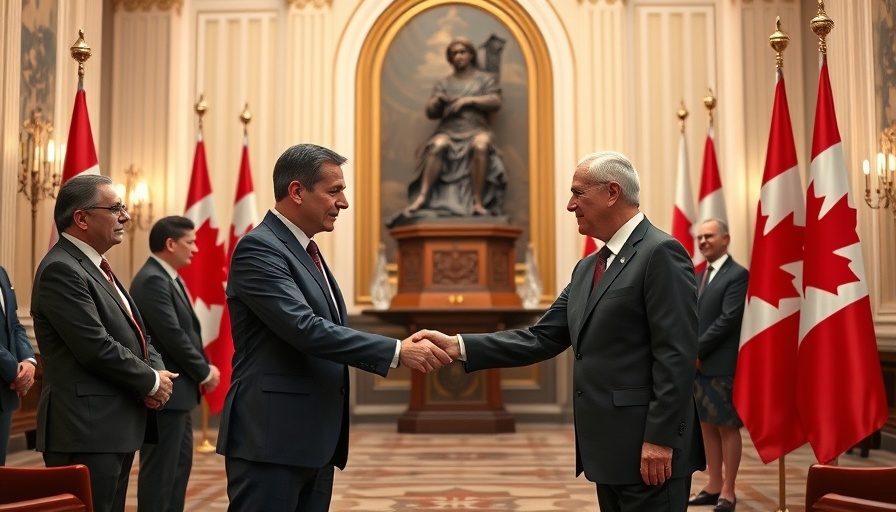
Canada's Commitment to NATO: A Strategic Move
Recently, Prime Minister Mark Carney announced a significant step in Canada's military strategy, extending the country's military mission in Latvia until 2029. This move is crucial for deterring Russian aggression and reaffirms Canada’s role in ensuring European security as tensions rise in the region. This commitment aligns with NATO's collective defense principle, assuring Baltic allies that support remains steadfast amid concerns of hostility from Russia.
Why Latvia? Understanding the Importance
Latvia is positioned on NATO's eastern flank and has been at the center of European security discussions since the annexation of Crimea by Russia in 2014. By maintaining a strong military presence in Latvia, Canada is helping to enhance the defense capabilities of the Baltic states, often referred to as the "trip wire" against potential invasions. This proactive strategy is designed to affirm NATO's resolve and deter any aggressive moves that Russia might consider within its neighborhood.
Expanding Military Capacity
Under Operation Reassurance, approximately 2,000 Canadian Armed Forces personnel are stationed in Latvia, contributing to the ongoing training and support of Latvian soldiers. Carney indicated that the capabilities of these troops would be further enhanced, showcasing Canada’s investment in international defense partnerships. This Pacific-oriented focus underlines the necessity of a cohesive NATO response to evolving threats.
The Bigger Picture: NATO’s 2% Defense Spending Challenge
As NATO encourages member countries to meet the 2% defense spending target, Canada is stepping up its military investments. The Latvian Minister of Defense has emphasized that meeting this target is essential for maintaining credibility within the alliance. Canada's commitment serves not only to support its own defense capabilities but also to reinforce the overall military readiness of NATO.
The Sentiment Among NATO Allies
Support for Canada’s extension in Latvia is echoed by various NATO allies, who recognize the importance of strong collective defense measures. The involvement of multiple nations in the mission fosters a shared responsibility, strengthening alliances and solidarity. This transatlantic cooperation is vital in ensuring that any acts of aggression are met with a unified front, enhancing the security of Europe as a whole.
Future Trends in European Defense
With a changing geopolitical landscape, it is anticipated that those committed to NATO will need to adapt and possibly expand their strategies. Experts predict a shift towards greater reliance on multinational forces, similar to NATO’s initiatives in Latvia. The ongoing military presence underscores a long-term strategy to fortify national defenses while expanding cooperative security efforts across Europe.
Call to Action: Engaging with International Affairs
As the world watches these developments closely, citizens in Canada and abroad must engage with the implications of military commitments. Understanding the complexities behind such decisions can foster a more informed public discourse on national security and international relations.
This news presents critical insights into how Canada is navigating its responsibilities in maintaining a secure environment in Europe amidst rising tensions with Russia. The country's actions now could have lasting impacts on international relations and defense strategies in the years to come.
 Add Row
Add Row  Add
Add 




Write A Comment